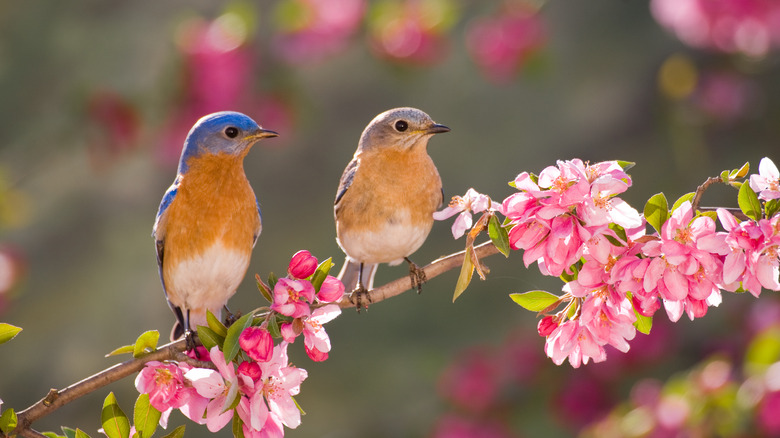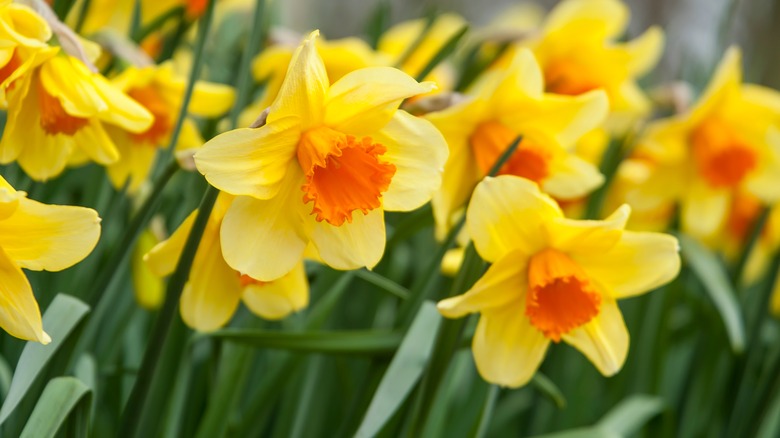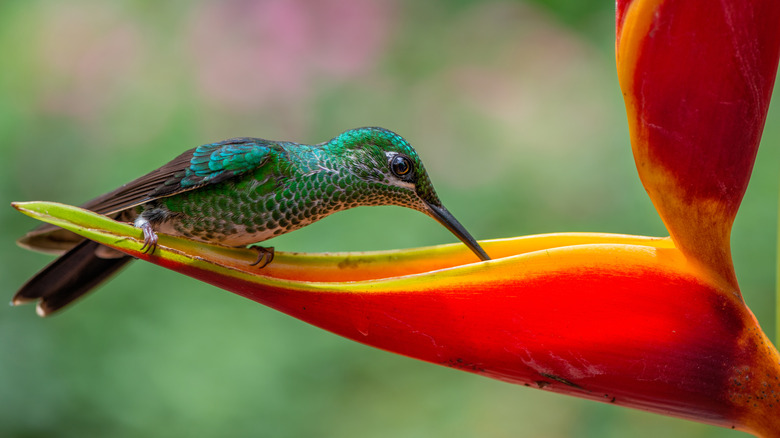Avoid These Toxic Plants If You Are Trying To Attract Birds
For an avid gardener, there isn't much better than seeing birds enjoy spending time fluttering around a luscious, thriving garden you've spent countless hours tending to. However, unbeknownst to many plant and animal lovers, there are a lot of plants that are highly toxic to birds that, if you want to maintain a bird-friendly yard, should be avoided.
Much like dogs aren't supposed to eat chocolate because its ingredients are toxic to them, a variety of common and unsuspecting flowers are dangerous for birds. The list of toxins includes (but is certainly not limited to) lilies, daffodils, ivy, and shamrocks, as well as common produce like onions, rhubarb leaves, avocados, and garlic. Fortunately, once you identify what plants in your garden are not bird-friendly, you have the chance to swap them out, and there are numerous other flowers and greeneries that serve as ample replacements for these toxic but otherwise beautiful plants.
What plants are unsafe
Because there are countless plants and plant variations, it's near impossible for one person to know just how many are dangerous to birds. However, there is a decent list of common dangers that every gardener should be aware of.
When it comes to colorful florals, Amaryllis flowers (including the bulb) can cause multiple gastrointestinal problems, including vomiting and diarrhea. Other flowers, such as daffodils, poinsettias, and lilies, also pose threats to birds' gastrointestinal health. In addition to flowers, other common plants are highly poisonous to birds and, like flowering plants, tend to attack the gastrointestinal tract. For birds, ingesting shamrocks, ivy, and mistletoe commonly cause vomiting and diarrhea, with shamrocks also resulting in tremors.
As for produce, onions and garlic cause kidney and red blood cell damage to birds. Avocados can result in heart problems and difficulty breathing. Rhubarb leaves may cause stomach and kidney problems and low blood calcium levels. All of these, while delicious and healthy options for humans, can be deadly to birds.
Suitable solutions and substitutions
Fortunately, there are multiple solutions to ensure that your garden isn't causing serious health problems to your feathered friends. Although the flowers and greenery mentioned above provide endless beauty to a home garden, other plants are equally as beautiful, and some of these substitutions can even provide health benefits to birds.
Heliconia flowers, known as "lobster claws" for their stunning red hue and unique shape, are ideal substitutes for toxic plants. Instead of causing health problems, these beauties serve as nectar-feeding flowers to nourish visiting birds. Roses and orchids are also bird-friendly, and since both come in different colors, they add depth and variety to any saturated garden.
For bird-toxic produce, there is a simple way to grow the foods you love without harming the animals around you. Grow these plants in sheltered spaces like greenhouses or garden beds with protective netting to protect both the plants and the birds that could potentially ingest them. All of these precautions will ensure that your yard is a welcoming place for birds to visit.


